How To Tease Hair: Simple Step-By-Step Process And Tips
Learn how to add volume to your hair and elevate even a simple hairstyle.
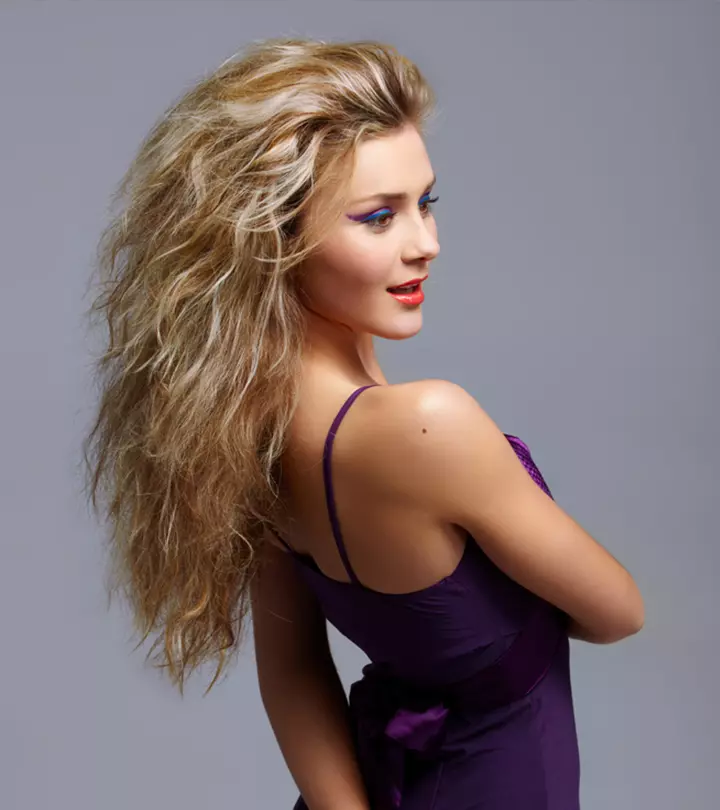
Image: Shutterstock
If your thin, straight hair loses all its volume too quickly, teased hair is going to be your saving grace. It is an easy and stylish backcombing trick that helps lift your locks and add body to them in no time! Hairstylists often use this method to give hairdos that extra oomph and much-coveted lift. Apart from volumizing your tresses, it also creates a base for various updos and intricate hairstyles. However, attempting to tease your hair without knowing the right way to do it can result in a tangled mess on your head. This article shows you how to tease your hair and style it right. Keep reading!
 Before You Get Started
Before You Get Started- Hold your texturizing hairspray at some distance from your hair before applying it to avoid making the strands wet.
- Use a boar- and nylon-bristled brush with minimum pressure from the hairline down to the tips to smooth the hair after teasing it.
- To remove the knots and untangle the teased hair later, use a soft-bristled brush to gently brush small sections of the hair from the roots to the tips.
In This Article
What Does Teased Hair Look Like?
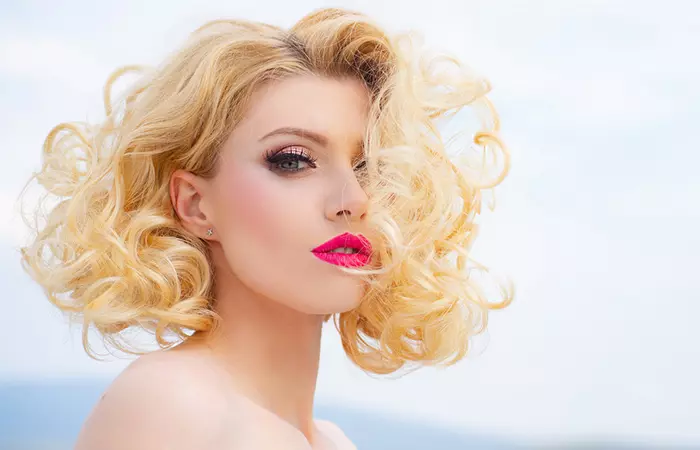
Hair teasing involves backcombing to create natural volume and a ‘nest texture’ at the roots. It adds lift to your limp hair and pairs well with other hairstyles. Whether it be flowy tresses, ponytails, braids, or blowouts, this technique can add extra flair to every hairstyle.
Jessica Shults, a Licenced Hairstylist, says, “Teasing isn’t just for adding height, it is also a secret weapon in advanced coloring techniques. For instance, in my Balayage method, I use the Teasy-lights technique where I gently tease the hair before hand painting highlights. This creates a beautifully blended, subtle ‘sunkissed’ effect, proving that teasing can be as much about creating dimension as it is about building volume.”
Further, this is a genius styling hack if you have thin or fine hair and have often pondered how to make thin hair look thicker to create voluminous-looking hairdos. Typically, the hair is teased at the roots and then smooth sections lay above to give you a well-defined look. It also works with clip-in hair extensions as it helps hide the tracks and blends them seamlessly with your natural mane. However, be careful not to overdo the tease as it can tangle the hair.
The most important thing in hair teasing is the products and tools used. The next section elaborates on the importance of tools used in the hair-teasing process
Key Takeaways
- Hair teasing involves backcombing to add volume and extra lift to your hair.
- You need to wash and dry your hair and spritz a texturizing spray on it before starting the teasing process.
- It may cause the hair cuticles to open and weaken the hair shaft, making it prone to breakage and split ends.
Importance Of Hair Teasing Tools
The tools you use also play a significant role in the success of your teasing efforts. A teasing comb is perfect for precision and creating a more structured, defined look. This tool works exceptionally well for finer hair or when you need volume in specific areas. On the other hand, a teasing brush is better suited for creating softer, more natural volume and is ideal for thicker or coarser hair. The bristles on a brush tend to distribute tension more evenly, making it a gentler option. Experimenting with both tools can help you determine which one works best for your hair type and styling preferences.
Incorporating volumizing products into your teasing routine can significantly enhance your results. Applying a lightweight volumizing mousse or spray to your roots before you begin can provide a solid foundation for teasing. These products help the hair hold its shape while giving it an extra lift. After teasing, a light mist of hairspray can lock in the volume and ensure your style lasts throughout the day. Avoid heavy creams or oils, as these can weigh down the hair and diminish the effectiveness of your efforts.
Combining effective techniques with the right tools and products allows you to create stunning teased hairstyles that look polished and professional. Make sure you use the right tools and hair-protecting products before teasing to keep your hair healthy.
Let us find out if teasing can damage your hair in the next section.
Does Teasing Damage Hair?
While teasing is suitable for all hair types, you need to do it with precision to avoid damaging your hair. Teasing will not ruin your hair if you carefully follow all the steps. You can also leave the task in the hands of an experienced hairstylist. But if you do it on your own without the right tools and technique, you are most likely to damage your hair. Different hair types need different tools and hair products for a smooth teasing process.
Thin hair and fragile strands are prone to breakage and roughly teasing your hair can damage hair cuticles (1). A hair type that gets tangled easily needs extra care as backcombing is likely to create tangles and knots to your hair. To detangle it, you can gently brush it from the roots to the ends with a soft-bristled brush. Work each section separately and rub some serum in the hair once you are done to keep it moisturized and healthy.
While thick or coarse hair may experience minimal breakage during teasing, you need to use styling products, such as mousse or wax, to easily work through your hair and give it more grip. Teasing can disturb the structure of naturally curly hair; hence, it is advised to backcomb the parts that can lay under the unteased parts to conceal the teasing.
Whether you attempt to tease your hair on your own or have someone do it for you, it is important to know the steps involved in it. The next section outlines that for you.
How To Tease Hair? A Step-By-Step Process
The right tools and methods can make teasing hair a breeze. We discuss how to tease and style hair below.
Tease Hair For Volume
Ready to add some gorgeous volume to your hair? Follow the step-by-step process to learn how to do so.
1. Prep Your Hair
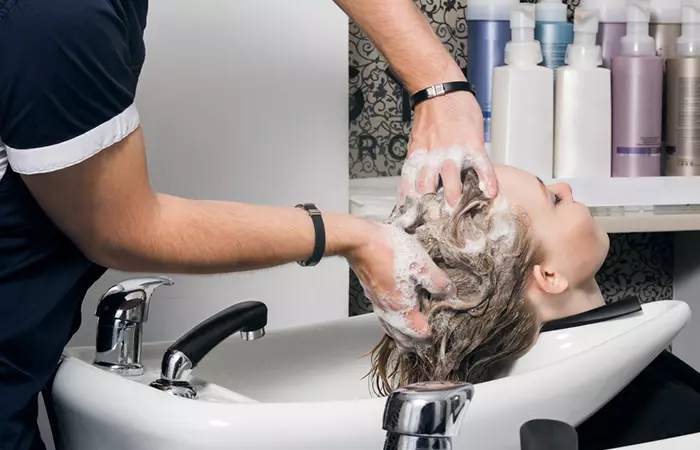
What You Need
- Hair dryer
- Hair mousse
- Dry shampoo/texturizing spray
- Paddle brush
What To Do
- Wash your hair with a volumizing shampoo to add some lift to your hair.
- Apply some mousse and blow dry it with your hair upside down until it is completely dry to properly volumize it.
- Spritz some texturizing spray or dry shampoo on your hair to add texture. They will also hold the tease longer and minimize damage.
- Use a paddle brush to remove all the tangles.
Maria, a blogger, often teased her hair and shared her teasing routine. In her blog, she wrote, “The No. 1 rule for teasing long hair is – hair products! Your teased hair is like a building, you need to build a solid foundation before going higher. So before I hit the comb I apply mousse to my entire hair.
- Wet hair in sections
- Apply mousse in sections
- Blow dry hair upside down
- Start teasing with hairspray, again in sections (i).”
She further stated, “Having your hair cut in layers is also a huge help. I do want to have long hair, and I will probably only cut the most top layer frequently for that Patricia Morrison look….Then there’s the biggest teasing trick of all – the brush. Some people use a thin comb, some use a special teasing comb. However, for my thick, heavy long hair I use a round brush.”
 Pro tip
Pro tip2. Map Out Where To Tease
Plan where and how much you want to tease. You do not want to tease the same place more than needed as it may damage your hair and create more texture than desired.
3. Build Volume On The Crown And Roots
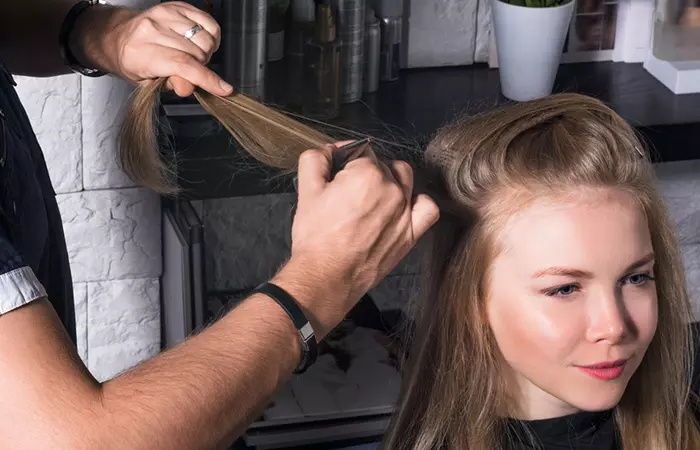
What You Need
- Rat-tail or teasing comb
- Long hair clip
What To Do
- Use the tail end of the rat-tail comb to separate a small section of hair, about ½ inch wide, at your crown.
- Pull this section up and away from your head and towards the mirror and hold it tautly.
- Place the comb in the middle of the section and gently comb it towards the scalp.
- If you are going for another stroke, place the comb closer to the roots.
- After teasing the hair, let the section fall forward on your forehead to maintain the volume and secure it with a clip to prevent it from interrupting the process.
- Take another section and repeat the process on all parts of your head till you achieve the desired volume.
4. Smooth The Top Layer Of Hair
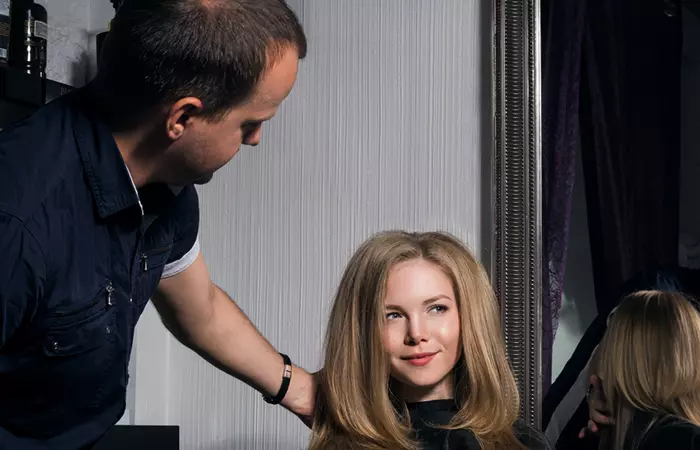
What You Need
- Wide-toothed brush
- Hairspray
What To Do
- After finishing the teasing process, unclip the hair and push it back.
- Use a brush to gently smooth the surface of the teased hair.
- Fluff the teased sections of hair lightly with your fingers to add extra volume.
- Spritz some hairspray to set the teased hair without making it look stiff.
5. Create Your Style
If you are leaving your hair down, you can step out after completing the last step. But if you want to style your teased hair, keep reading.
‘80s Style For Teased Hair
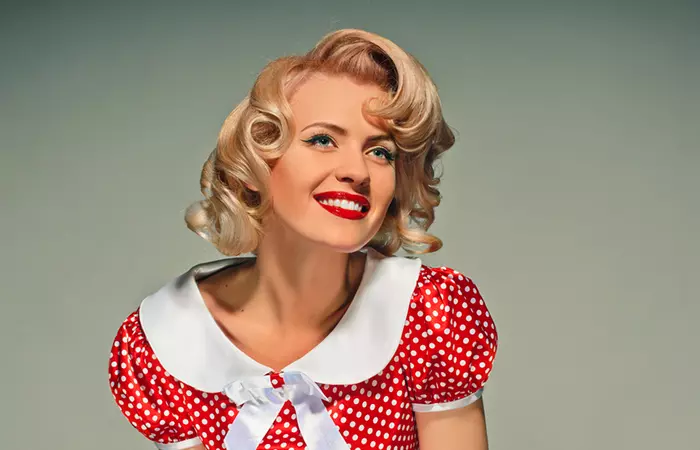
Teasing was almost a necessary hairstyling step in the ‘80s. The voluminous hair bouffants and victory rolls needed to be bumped up for full effect. Now that you have already added the needed volume, let us see how to style big teased hair for an ‘80s hairdo.
What You Need
- Curling iron
- Heat protectant
- Claw clip
- Hair elastics
- Hair oil
What To Do
- After teasing and smoothing your hair, apply some heat protectant to it.
- Divide your hair into different sections and secure them with a claw clip.
- Take a section and wrap it around the curling iron to get a nice curl.
- Unwind the section from the iron barrel after 10 seconds and tie it in a small bun using a hair elastic to retain the curl and prevent it from getting entangled.
- After curling all the sections, slowly untie the curls, hold them in your hands for a few seconds and gradually let them go to keep the curls intact.
- Use your fingers to gently pull the curls and apply a drop of hair oil to add a glossy touch.
- Now, you can either create a side-swept look or pull your curls in a ponytail and accessorize your hair.
Although teasing allows you to curate beautiful hairstyles, there are also certain risks that come with it. Keep reading to know about them.
Risks Of Teasing Hair
Like any other hair styling technique, hair teasing also has some cons discussed below.
- Hair Loss: Teasing your hair roughly can be painful as it pulls at the scalp, which may even cause the hair follicle to come out (2).
- Split Ends: Frequent backcombing can open and damage hair cuticles, causing the hair shaft to become weak and prone to split ends (3).
- Hair Breakage: The opening of the cuticles, weak hair shaft, and painful tugging at the scalp can also make your hair prone to breakage (3).
- Matted Knots: Rough and raised cuticles cause the strands to entangle with each other (4). They are hard to remove with usual combing.
 Quick tip
Quick tipWomen have used the hair teasing method for a long time to add extra body and lift to their flat hair. It forms the starting step for most hairstyles. All you need to do is section your hair and backcomb using a rat-tail comb. After finishing the teasing process, smooth the top layer of the hair to create a natural look. Although people with any hair type can use this method, it is best suited for thin hair as it creates instant volume and adds height.
Frequently Asked Questions
Does teasing hair make it look thicker?
No, hair teasing makes the mane look voluminous but not thicker. The thickness of the hair refers to the width of each hair strand while volume means fullness.
How do you tease your hair to cover bald spots?
Backcomb the hair around the bald spot with a rat-tail or fine-tooth comb to create volume and hide the bald spots.
Is a teasing comb or brush better?
A teasing brush is gentle compared to a hair teasing comb. The hard teeth of the comb pull and tear the strands, while the soft and flexible bristles of the brush do not put much strain on the tresses but separate and lift them.
Can you tease your hair without a teasing brush?
If you do not have a teasing brush, you can use a fine-tooth brush or rat-tail comb to tease your hair.
Teasing your hair without proper care can prove to be more harmful than you think. The video below shows you how to tease thin hair without unleashing damage on it or making it tangled. Click the play button to learn more.
Personal Experience: Source
StyleCraze's articles are interwoven with authentic personal narratives that provide depth and resonance to our content. Below are the sources of the personal accounts referenced in this article.
(i) Teased Orange Hair: Update & Inspo
https://nebelviolet.blogspot.com/2017/02/teased-orange-hair-update-inspo.html
References
Articles on StyleCraze are backed by verified information from peer-reviewed and academic research papers, reputed organizations, research institutions, and medical associations to ensure accuracy and relevance. Read our editorial policy to learn more.
- Combing damage to hair cuticle structure
https://onlinelibrary.wiley.com/doi/abs/10.1111/j.1468-2494.2007.00403_4.x - Hair loss: Common causes and treatment
https://pubmed.ncbi.nlm.nih.gov/28925637/ - Mechanism of cuticle hole development in human hair due to uv-radiation exposure
https://www.mdpi.com/2079-9284/5/2/24 - Bird’s nest view from a dermatologist’s eye
https://www.ncbi.nlm.nih.gov/pmc/articles/PMC4830164/
Read full bio of Jessica Shults
Read full bio of Pahul Nanra
Read full bio of Subhrojyoti Mukherjee
Read full bio of Aparna Harry







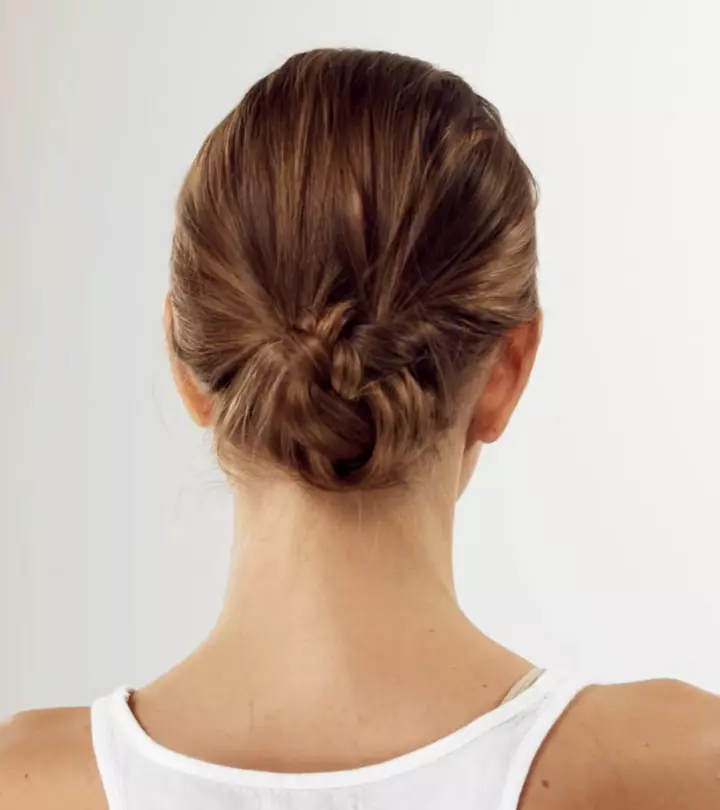
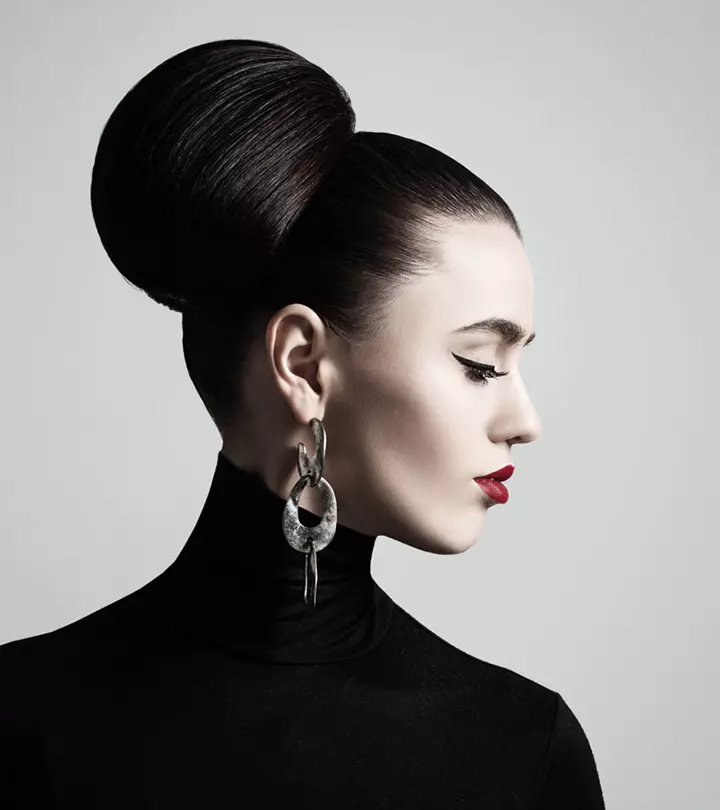
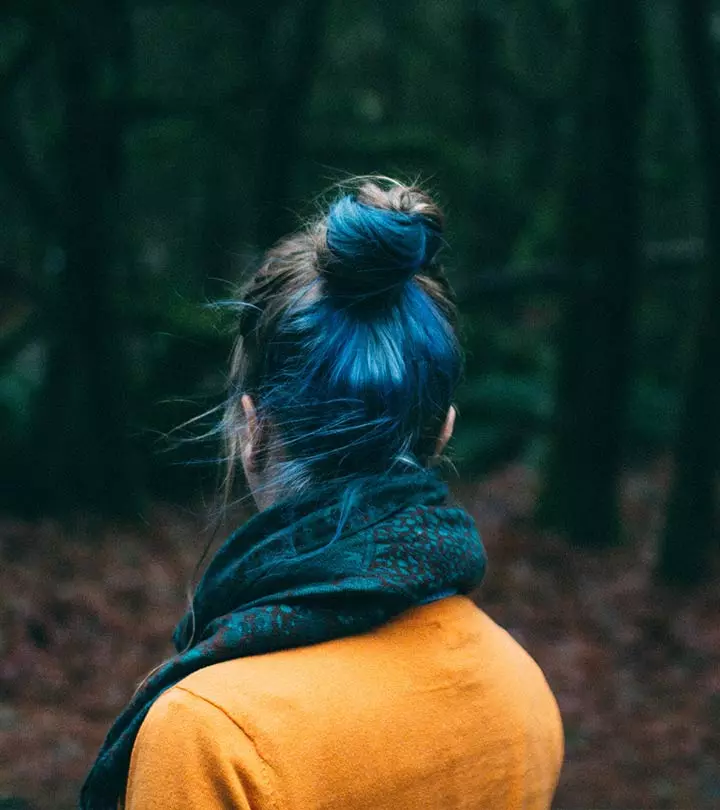
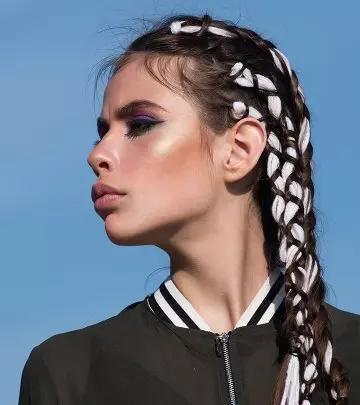
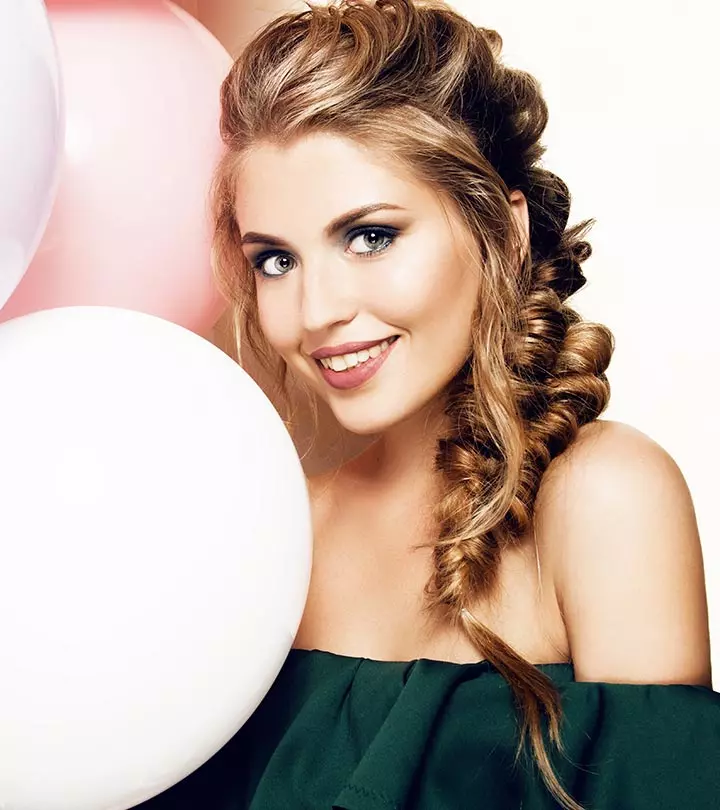

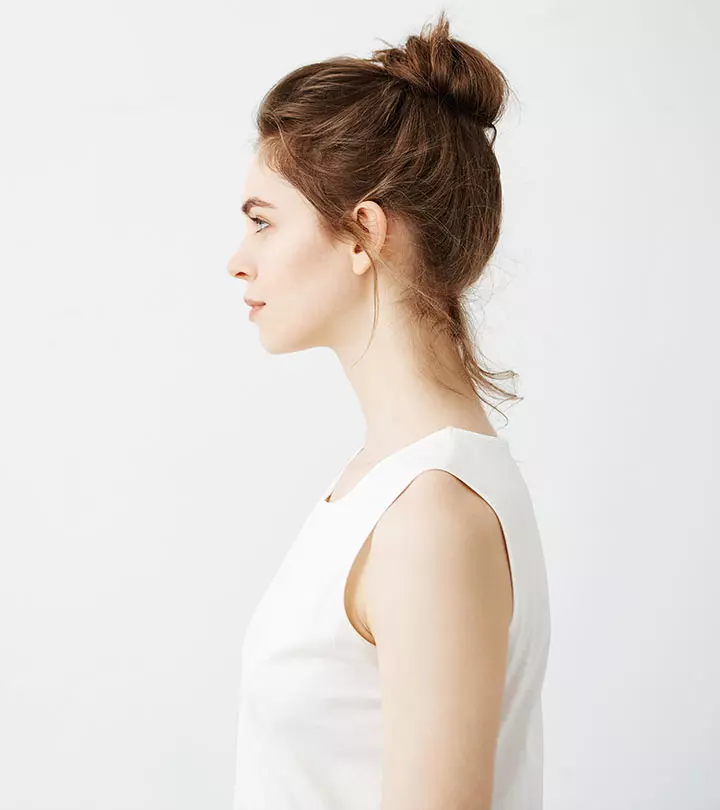

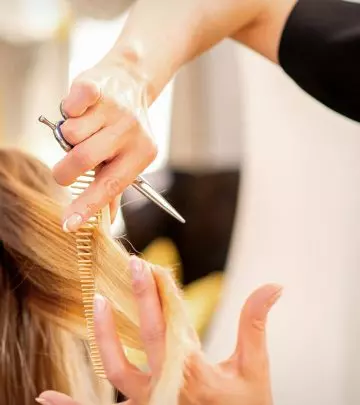
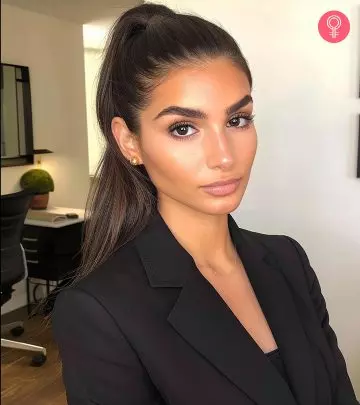
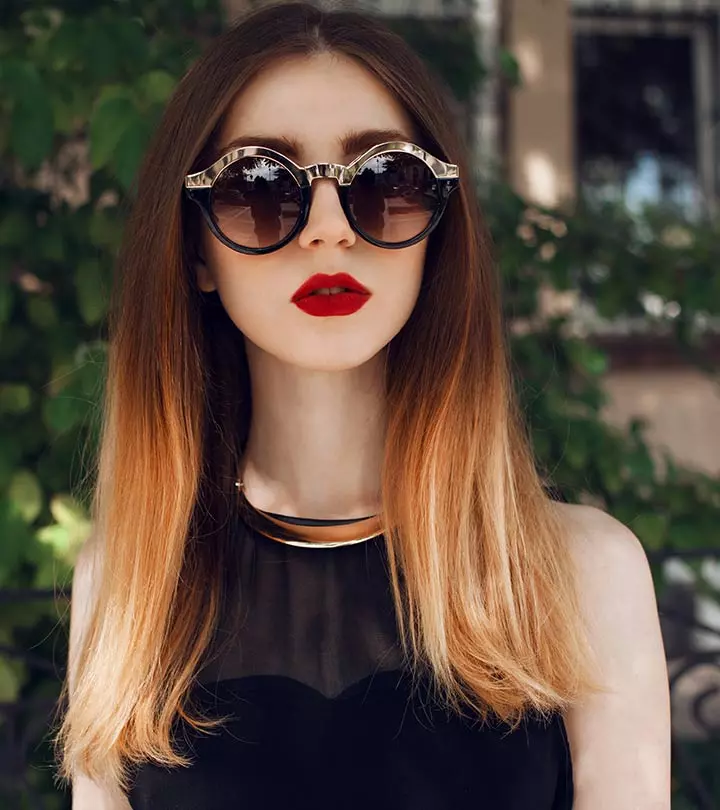
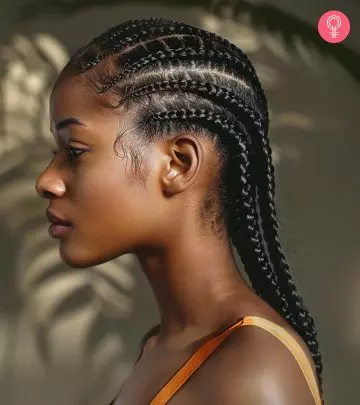
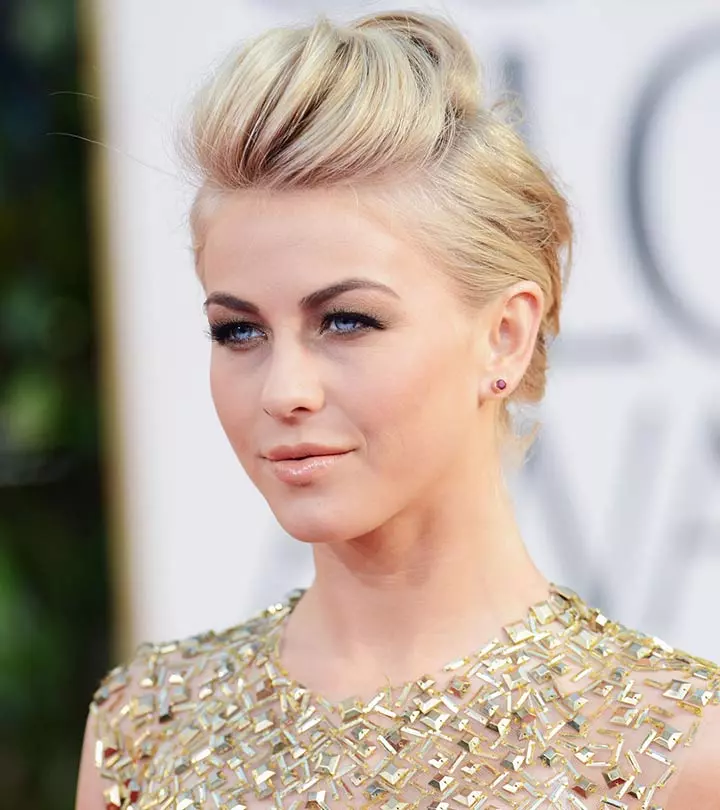

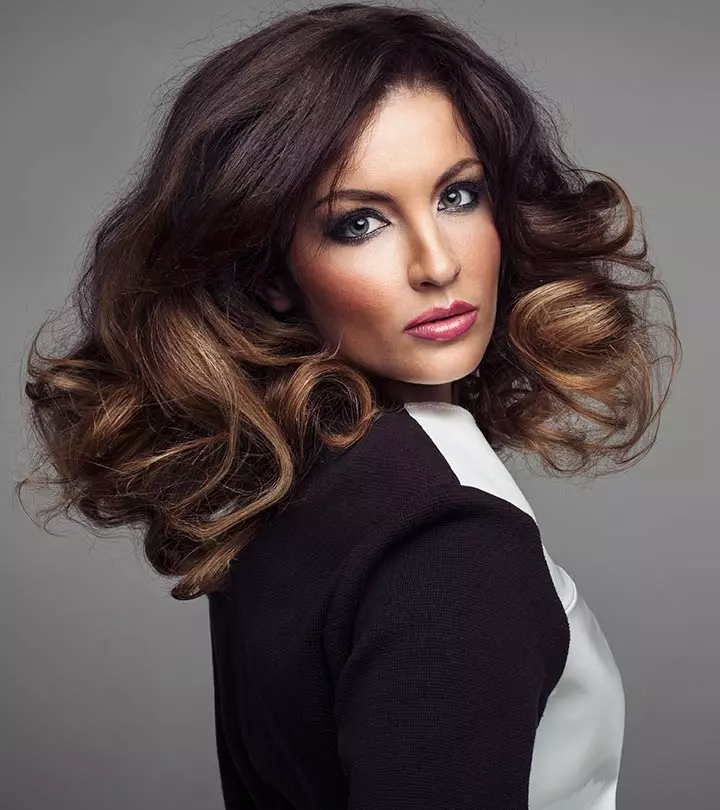

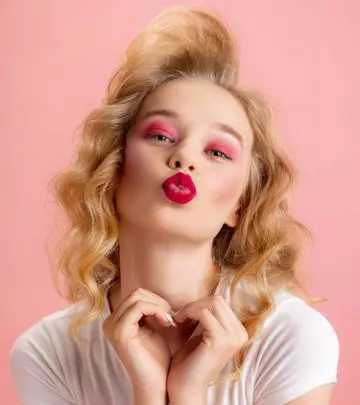
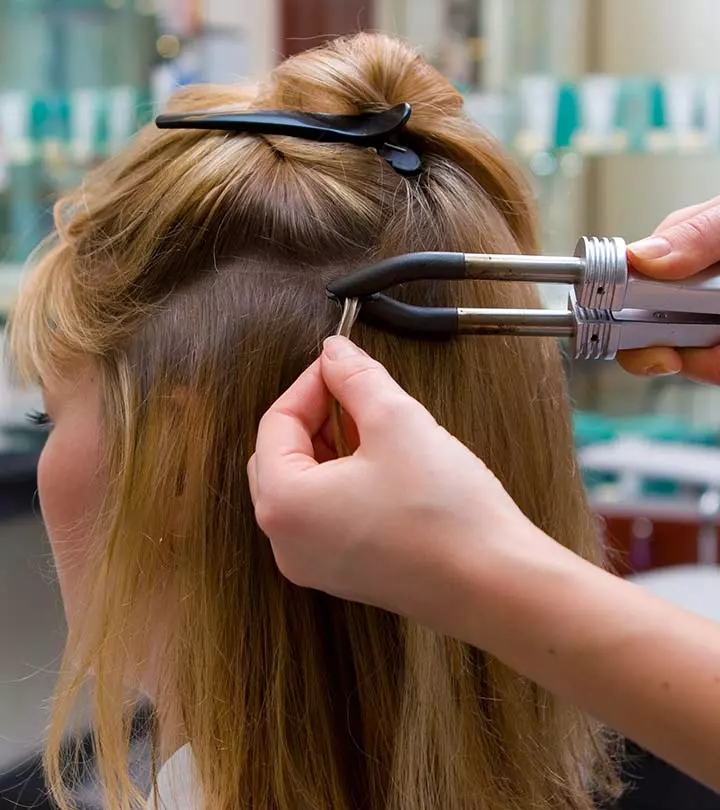

Community Experiences
Join the conversation and become a part of our empowering community! Share your stories, experiences, and insights to connect with other beauty, lifestyle, and health enthusiasts.